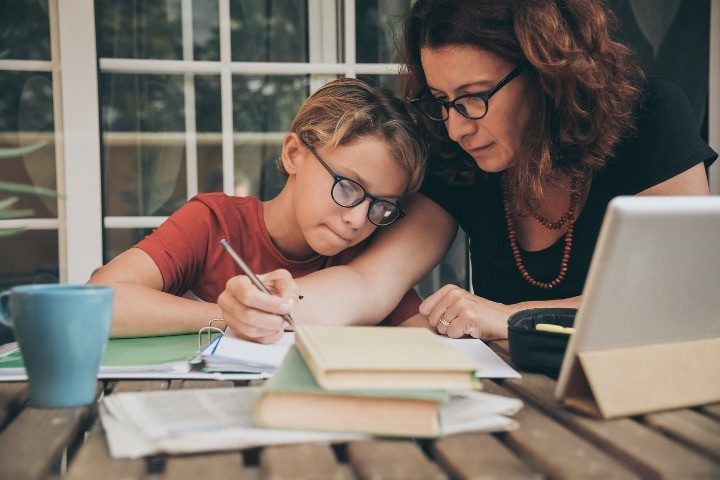
The surge in homeschooling, aided and abetted by the pandemic, continues.
The pandemic revealed to many parents for the first time just what sort of socialist and cultural indoctrination their children were being subjected to in the public schools. The school shooting in Uvalde, Texas; the increase in the use and sale of drugs on campus; the imposition of CRT in place of real American history; bullying; and — oh yes — poor academic performance — all have figured into the new educational equation.
Initially, the number of students leaving public schools during the first year of the pandemic was staggering. At one point, instead of just three percent of all students being schooled at home, that percentage tripled. Among black families, it quintupled.
In Texas, for example, the percentage of students being homeschooled during the 2019-2020 school year was estimated to be 4.5%. The very next year the percentage nearly tripled, to 12.5%.
That surge continues thanks not only to the results being enjoyed by those homeschooled students in terms of educational excellence, but also to the homeschool movement itself.
Taking Texas as an example, opting out of public schools is fairly simple and mostly unregulated. If a child is moving out of a public school, the parents are required to notify the local school district. The state then only mandates that the child’s learning at home be in a visual format (workbooks and online courses) and that the curriculum include reading, grammar, math, and what Texas calls “good citizenship.”
South Dakota has taken notice and relaxed its home schooling rules. Efforts of the Home School Legal Defense Association (HSLDA) paid off with the passage of Senate Bill 177, which ended the requirement that homeschool students take standardized tests. Prior to that, if a student failed the tests, the state had power to intervene.
An HSLDA attorney celebrated the victory:
It was a big win for parental rights. It cut out unnecessary regulation and streamlined the process so parents can invest their time in providing the best education they can for their children.
Similar victories or relaxations have occurred in Virginia, Illinois, South Carolina, Iowa, Idaho, Mississippi, and Utah, according to a study by The Epoch Times:
Beyond requirements that homeschooling parents teach a few core subjects like math and English, they are free to pick the content.
Another factor favoring homeschooling is flexibility. Homeschooling mom Kim Quon of Missouri reported to The Epoch Times that after finishing the required classes — usually from 8:30 to noon on weekdays — her children “had a lot of time left in the day to explore their own interests.”
And Quon had plenty of help from online sources:
I’m not a college graduate. So you don’t have to be a brainy person to homeschool your kids because there are so many resources and people available to help.
For another homeschooling mom, Linda McCarthy of Buffalo, New York, the decision to homeschool was easy. In the public schools,
There are kids who don’t know basic English structure, but [the schools] want to push other things on children, and it can be blatant. But it can be, and mostly is, very subtle, very, very subtle.
So we were ready to pull [our children out] and will never send them back to traditional school.
The continuing growth of the homeschooling movement is especially encouraging to those involved in the freedom fight. Abraham Lincoln said: “The philosophy of the school room in one generation will be the philosophy of government in the next.”
Eric Metaxas frequently voices his support for the homeschooling movement as being fundamental in the freedom fight, as does David Davenport, a fellow at the Hoover Institution: “If you are concerned about the direction of America, it is time to do something about the study of civics, which is the real long-term solution.”




